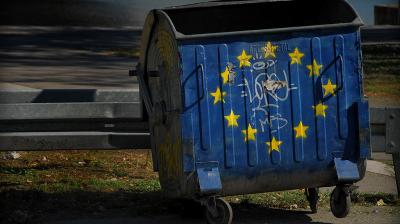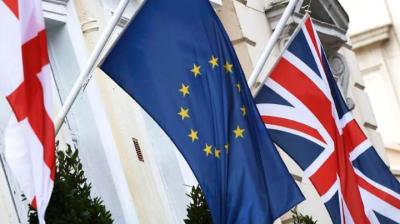The UK’s decision to leave the EU has rekindled democracy across the European continent. EU integration will inevitably become à la carte, where member states decide what level of sovereignty they will share and on what topics. For this reason alone, the UK’s Independence Day is a wake-up call for the rest of Europe.
It’s a law of physics that under pressure, everything becomes fluid. With the UK’s decision for Brexit, the pressure is now put on the European Union (EU) and its member states to reform the Union and to put a stop to grandiose plans to develop a United States of Europe. Before June 23rd, ordinary people were made to believe that an “Ever Closer Union” was the inevitable and only option for the EU. No matter what they voted in national elections, their governments agreed to further integration, despite rising concerns among citizens. Brexit has put an end to this political charade, by suggesting a clear and tangible alternative route for the future of Europe. Whether Brussels likes it or not, it has to negotiate a so-called Withdrawal Agreement with the UK. This process will most likely begin in earnest after a new prime minister takes office in Number 10, probably this October.
This Agreement will be negotiated by existing EU member states, who will have to make economic and trade deals with the UK (the 5th economy in the world) and may even agree to offer it a kind of Associate Partnership status. With elections coming up in The Netherlands (March 2017), France (April/May 2017) and Germany (autumn 2017), the rest of Europe will be curious to see what is on offer in terms of economic and political integration. If the UK gets a fair deal (which I certainly hope), Eurosceptical parties in continental Europe are likely to push for a Nexit, a Frexit, or whatever “exit” seems possible. Recent opinion polls indicate that this scenario is more than likely: 55% of the Dutch electorate supports an EU In-Out Referendum in their country, and some 48% would support Leave.
The Dutch Party for Freedom (PVV) plans to propose a binding EU Referendum for The Netherlands, a topic which will dominate the Dutch debate and influence the upcoming parliamentary elections. For Brussels (and the member states) it seems “damned if you do, damned if you don’t”: If the UK is offered a lousy deal, many Europeans will consider this an astonishing sign of ingratitude towards a country that has saved Europe from itself in two World Wars. But if the EU offers the UK a good or even generous deal, it will wet the appetite of wavering EU-critical Europeans who may vote accordingly in domestic elections. For these reasons, Brexit is labelled a game-changer, and this may even be somewhat of an understatement. Usually, paradigm shifts are for the worse (think: 9/11), but not this time. The British voters have done the EU a great service by widening the democratic choice of Europe’s citizens. It’s no longer “You can have any color you like, as long as it’s black”; or “The train has already left the station…” European integration will become à la carte, where every member state is allowed to decide what level of sovereignty it is prepared to share, and on what topics. This is long overdue, offering the EU a new vision based on strong and independent member states.








